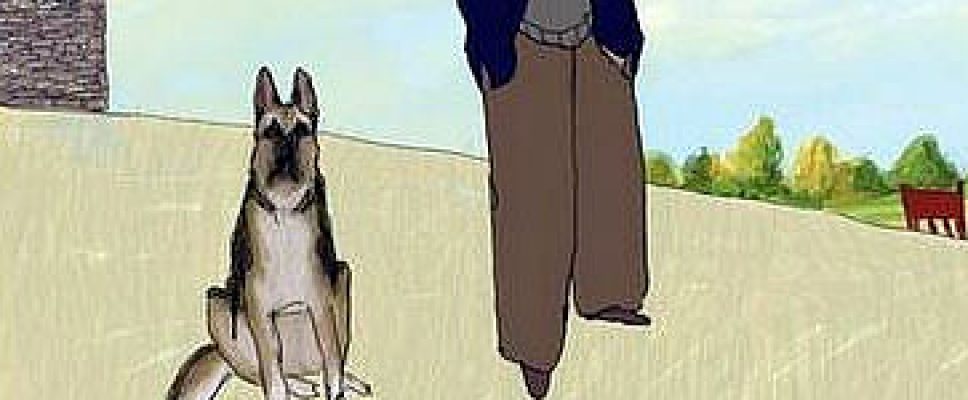The Horndog and the German Shepherd (1946)
The heart wants what it wants, Woody Allen said, and to J. R. Ackerley, the English memoirist and editor, it was Queenie. She was everything he wanted in a lover. She was also a German shepherd.
For 30 years, the Cambridge-educated Ackerley (1896-1967) was a cultural gatekeeper at the BBC. As literary editor of the network’s weekly cultural review, he published pieces by top-rank writers and thinkers, including Virginia Woolf, John Maynard Keynes, and Cecil Day Lewis. He was also a homosexual libertine who regularly solicited working-class men for quickies. He was so notorious a libertine that Lytton Strachey, the Edwardian writer and fellow homosexual, finished a letter to him by adding “With best regards to The Army, The Navy, and The Police Force.”
In that respect, he followed his father, who loved women, drink, and food, and died of syphilis at 66. They had a distant relationship, and it was a point of irritation to Ackerley that Dad refused to discuss their sex lives. “I prefer not to know,” Dad said when Ackerley informed him of his sexual orientation, “So long as you enjoyed yourself, that’s the main thing.” Dad lived by this belief: In a note to Ackerley after his death, he revealed the existence of another family, courtesy of a secret mistress.
But despite all the men he sampled, he lost his heart to Queenie. He bought her from a former boyfriend. It was the only dog he owned, and he fell hard. He bought her horse meat and baked dog biscuits. He’d take her on walks that would last for hours.
Queenie loved Ackerley in return. You might even say she was a jealous bitch. She barked furiously when anyone approached him. When he was working, she would sit in a nearby chair, eyes fixed solely on him. Her behavior was so dominating that friends’ invitations to visit dwindled. Ackerley distanced himself from them in return, a classic sign of abuse in human relationships.
But in his eyes, Queenie was perfect. His memoir, “My Dog Tulip” (1956), is lyrical in his descriptions of her ears (“like the ears of Anubis”), the shape of her face, and her “tiny mobile eyebrow tufts.” He even described the way she defecated in poetical detail.
He never explained the drive behind his extreme candor. It’s almost as if, blocked from living freely as a homosexual man, the next best thing was to out Queenie. The details were startling, even shocking, for 1950s Britain. When she was in heat, the male dogs would rush to her. She refused them all, but she would enjoy “being pleasured by their little warm tongues.” Watching her hunt rabbits in a field, he described her “effortlessly falls and rises, like a dolphin out of the green sea.” He hears the rabbit scream, then “the crunch of the tender bones and the skull, bone will warm with the lust of the young creature’s life.” Yet “My Dog Tulip” was chosen by the American Book-of-the-Month Club.
But all relationships end. Ackerley and Queenie aged and grew arthritic. Ackerley strove to keep her alive, but when she gave up, he had her put to sleep. He deeply regretted doing so. His drinking took a turn for the serious, and he spoke of welcoming the “dear dark angel” of death. He eked out six more years without Queenie, living on his small pension with a harridan of a sister in a small flat, until she came for him.
